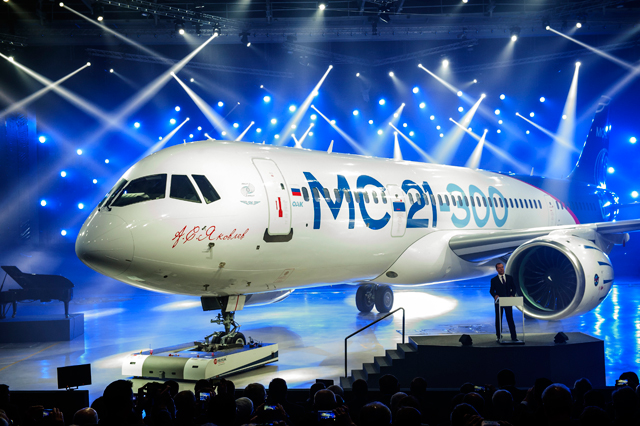In a completely rational, market-driven world, the make-up of Russia’s aviation industry would no doubt look very different.
Rather than attempting to directly confront the Airbus/Boeing duopoly by making competing products, Russian manufacturers in a market ruled solely by economic forces would instead focus scarce resources on areas of comparative advantage, such as low-cost combat aircraft, missiles and helicopters.
In commercial aviation, Russia would become a contributor to the global supply chain for raw materials, aerostructures and aircraft design talent.
Of course, the world is not governed purely by market forces. In real life, politics intrude on economic principles, even in the supposedly market-driven societies of the West. For overlapping political and economic reasons, the Russian government has no intention of remaining dependent upon Airbus and Boeing technology for cost-efficient and safe air transport.
As a result, if current schedules are reliable, in two or three years there will be a Russian alternative to the A320neo and the 737 Max in the narrowbody market. And in roughly a decade, a Sino-Russian widebody will exist to challenge the A350-900 and 787-9.
In the short term, it is difficult to see how Russian industry will achieve economic success in the commercial aircraft market. Heavy participation by top-tier Western suppliers did not spare the Sukhoi Superjet programme from billions in financial losses, which have been abated only by a recent government-funded bail-out. As Irkut prepares to fly the MC-21 early next year, the benefit of the Superjet experience should help. But Irkut is undertaking a far more ambitious project, challenging not only the economics but the extreme reliability and awesome spread of Western alternatives.

BillyPix
To be clear, the MC-21 is designed to be competitive. It looks exactly how a clean-sheet narrowbody designed 30 years after the A320 should: wider, longer and lighter, as well as more comfortable in the cabin and – thanks to active sidesticks – more advanced in the cockpit. It offers a valuable object lesson in what airlines are losing today by waiting another 15 years for a new clean-sheet narrowbody, rather than settling for merely re-engined and updated copies.
For Russia, however, success will not be defined purely by economic standards. If the MC-21 is viewed as successful, it will have accomplished Russia’s political goal of technological independence.
Source: Flight International


























